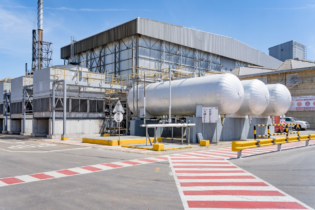 The City of Cape Town has called for the results of the Household Survey 2015 to be interrogated and verified against other data before it can be used to manage future implementation.
The City of Cape Town has called for the results of the Household Survey 2015 to be interrogated and verified against other data before it can be used to manage future implementation.
Cape Town disputes figures
The data shows that 96% of households in the Western Cape receive electricity from mains for lighting. On the provision of water, the report indicates that 1 116 000 households (96.3%) in Cape Town have adequate access to a piped water supply at RDP standards or higher and 43 000 (3.7%) at a lower standard, including 6 000 (0.5%) with no water supply. “The City of the opinion that 99,5% of households have an adequate supply of water at the required minimum standard,” said Neilson is a statement.“The greatest concern with the reporting on the Household Survey is that of household access to sanitation.” Stats SA reports that 1 063 000 households (91.8%) have access to at least basic sanitation. It reports that 67 000 households (5.8%) have bucket or no sanitation. The City of Cape Town does not agree with this assessment. “The primary problem seems to lie with Stats SA’s definition of access to sanitation, which it defines as ‘flush toilet connected to a public sewerage system or septic tank or a pit latrine with ventilation pipe’. This definition excludes significant other toilet technologies, such as chemical toilets, portable flush toilets and container toilets, which are widely recognised as adequate technologies for basic sanitation provision.” According to Neilson, the Stats SA definition is at odds with the Section 9(i) of the Water Services Act (1997), which defines Sanitation Minimum Standards as:
‘The provision of appropriate health and hygiene education; and
A toilet which is safe, reliable, environmentally sound, easy to keep clean, provides privacy and protection against the weather, is well ventilated, keeps smells to a minimum and prevents the entry and exit of flies and other disease-carrying pests.’ Neilson believes that all of the alternative typologies that the City of Cape Town provides in informal settlements meet the legal definition and the national standard. This includes chemical toilets, portable flush toilets and container toilets. Chemical and container toilets are not only cleaned three times a week but also receive daily janitorial servicing in Cape Town. These typologies are used due to the unfavourable ground conditions in most informal settlements which prevent the installation of full-flush toilets, along with other legal technicalities. Ventilated pits are not a possibility in Cape Town due to, for example, our higher water table. The only alternative to these facilities would be no sanitation at all – a scenario the City of Cape Town would never accept as a caring city. The City’s own evaluation of sanitation provision is as follows:| Toilet provision (i.e. access to specific type of toilet) Formal households 898 557 Access to full-flush | | |
| Backyarder households serviced | 79 612 | Access to full-flush in primary dwelling |
| Households in informal settlements serviced at 1:1 | 21 063 | Access to PFTs (20 538) Modified Afrisan toilets (525) |
| Households in informal settlements serviced at 1:4 | 352 | Access to Dehydration Enviroloo (352) |
| Households in informal settlements serviced at 1:5 | 143 145 | Access to full-flush (77 255) Chemical toilets (29 585) Container toilets (33 000) Ventilated pit toilets (1 435) Urine diversion – Mobisan (70) Pour-flush toilets (1 800) |
| Households serviced by 25-litre black buckets | 217 | Note that all households using black buckets have been offered alternative sanitation |
| Households not serviced | 0 | As confirmed by the 2012 Department of Water Affairs Report on the status of sanitation services in South Africa, according to which Cape Town has 100% access to adequate sanitation – page 38 of 40 |
| Total households | 1 143 043 i.e. all serviced | i.e. 8 118 more than estimated 1 134 925 number of total households in the City of Cape Town |
| | | |







